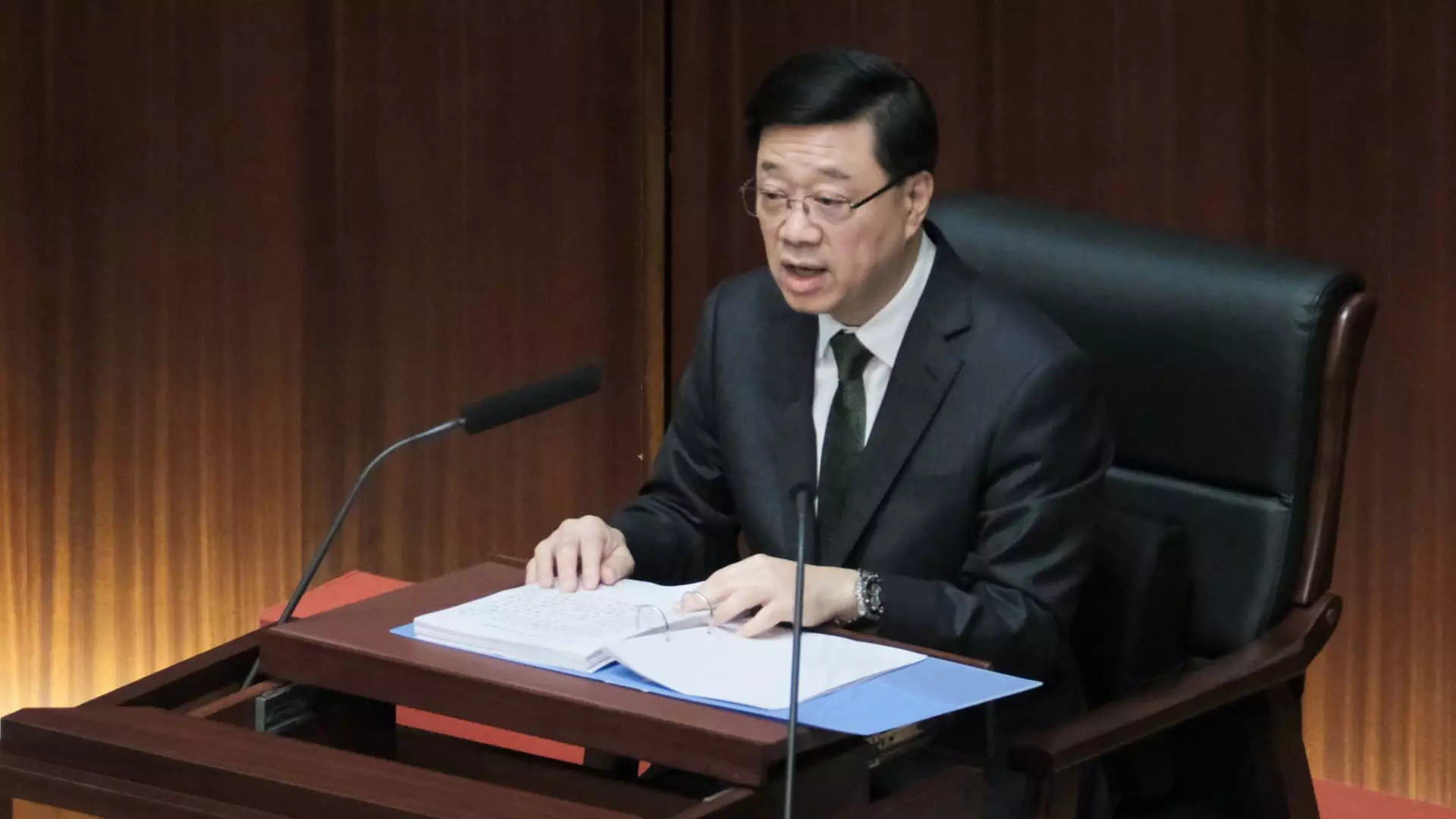Hong Kong has long been notorious for its exorbitant housing prices, making it the least affordable city to live in for over a decade, according to the 2024 Demographia International Housing Affordability report. The crux of the issue lies not only in the high prices but also in the increasing difficulty faced by young people trying to secure a permanent place to live. In a recent policy address, Chief Executive John Lee outlined a series of proposals aimed at alleviating the pressing housing crisis, particularly for residents under 40, a demographic that increasingly finds itself marginalized in the crowded real estate market.
One of the most significant announcements made by Lee was the introduction of a more favorable allocation system for subsidized housing specifically targeting individuals under the age of 40. By enhancing their odds of being selected for the Home Ownership Scheme flats with an additional ballot number, the government is attempting to counteract the rising concerns that young Hong Kongers may start to reject job promotions or salary increases merely to maintain their eligibility for government housing. This move reflects a growing awareness that the traditional pathways to property ownership are becoming increasingly out of reach, leaving the youth with few options.
Additionally, the government is amplifying its housing support through the “White Form Secondary Market Scheme,” which will see an extra quota of 1,500 flats reserved for those under 40. This is a welcome change, considering that only 4,500 households were eligible under this scheme in 2023. These incremental steps are undeniably a proactive approach to tackle a system that has long left younger citizens at a disadvantage.
While the measures aimed at young citizens are notable, they are part of a larger effort to address the housing crisis as a whole. Lee also underscored the inadequacies relating to the current living conditions in Hong Kong, particularly with regard to “shoe-box sized” subdivided flats. These cramped units, often deemed substandard, have come under scrutiny for posing health and safety risks to residents. The government’s initiative to convert these subpar units into “Basic Housing Units” that adhere to specific requirements—such as having windows and toilets, and a minimum size—marks a meaningful stride toward improving living conditions for the most vulnerable populations.
Moreover, the Chief Executive confirmed plans to complete approximately 9,500 new public housing units next year, with a broader aim of reaching 30,000 by 2027-28. While the current wait time for a public housing unit hovers around 5.5 years, Lee has indicated a belief that this could be reduced to 4.5 years by 2026-2027. Such projections hint at a more streamlined system, though many may question whether these timelines can genuinely be fulfilled given the complexities involved in urban housing development.
This recent policy address represents a significant shift in focus for John Lee’s administration, steering away from topics that previously dominated discussions—such as national security and post-pandemic recovery—and veering toward the economic and everyday realities faced by residents. This shift comes on the heels of a dark period marked by civil unrest and public health crises, during which housing concerns were often overshadowed by other pressing issues.
By emphasizing residents’ livelihoods, Lee is presenting a narrative that prioritizes the immediate needs of Hong Kong’s citizens, particularly given the evidence pointing toward growing disillusionment with the current state of housing and the economy. The genuine effort to tackle these problems could be seen as a pivotal move to regain public trust and improve the efficacy of Hong Kong’s housing policies.
John Lee’s strategies to confront the housing affordability crisis present an essential turning point for governance in Hong Kong. While many steps are being taken to address the immediate concerns surrounding housing availability for young residents, the burden of expectation now lies with the government to effectively execute these plans. The road to improved living conditions and accessible housing is undoubtedly fraught with challenges, but there is hope that, with determination and innovation, this new approach will ultimately pave the way to a brighter and more inclusive future for all Hong Kongers.

